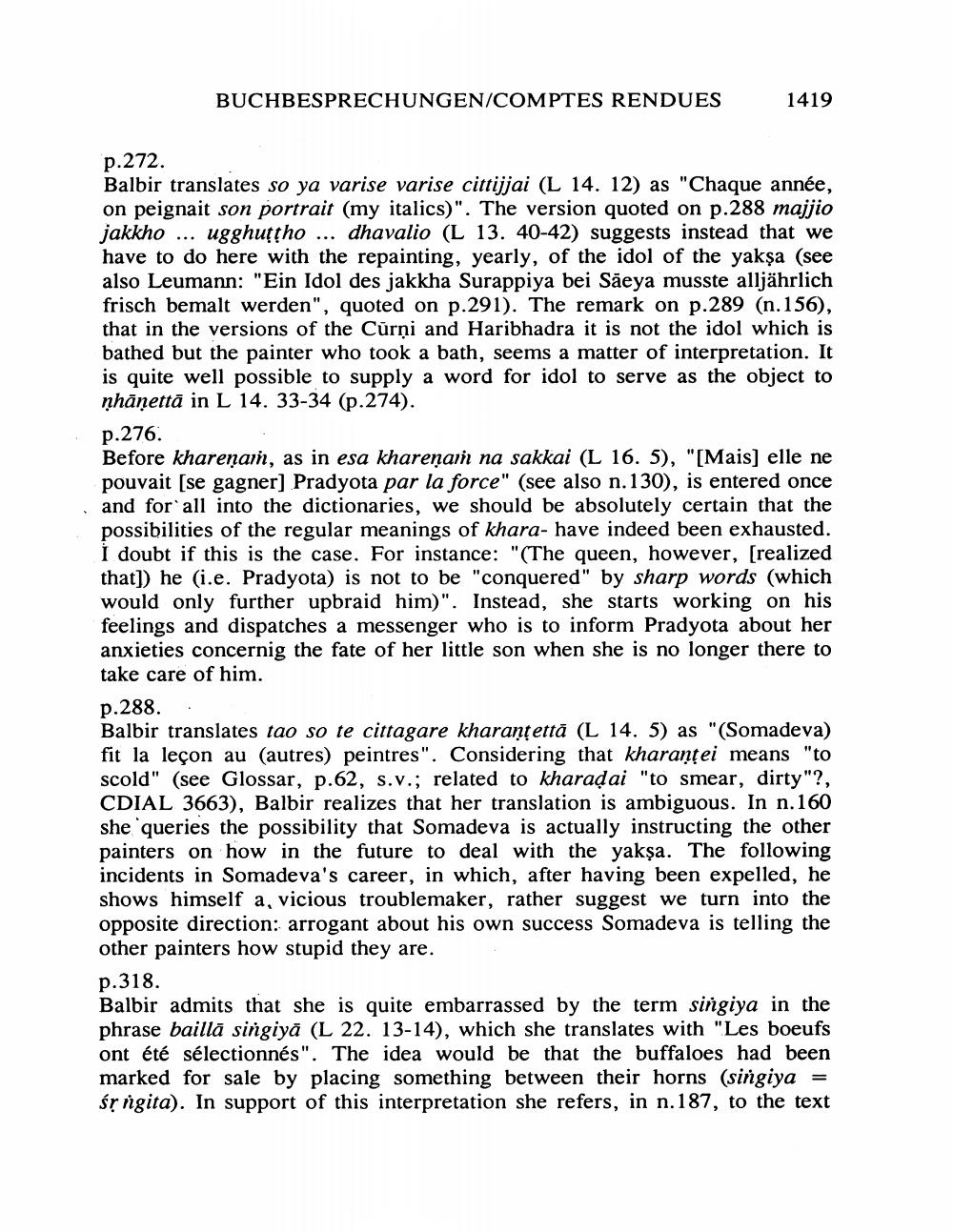Book Title: Buchbesprechungen Comptes Rendues Author(s): Nalini Balbir Publisher: Nalini Balbir View full book textPage 5
________________ BUCHBESPRECHUNGEN/COMPTES RENDUES 1419 p.272. Balbir translates so ya varise varise cittijjai (L 14. 12) as "Chaque année, on peignait son portrait (my italics)". The version quoted on p.288 majjio jakkho ... ugghuttho ... dhavalio (L 13. 40-42) suggests instead that we have to do here with the repainting, yearly, of the idol of the yakşa (see also Leumann: "Ein Idol des jakkha Surappiya bei Sāeya musste alljährlich frisch bemalt werden", quoted on p.291). The remark on p.289 (n.156), that in the versions of the Cūrņi and Haribhadra it is not the idol which is bathed but the painter who took a bath, seems a matter of interpretation. It is quite well possible to supply a word for idol to serve as the object to ṇhāņetta in L 14. 33-34 (p.274). p.276. Before kharenam, as in esa khareņain na sakkai (L 16. 5), "[Mais] elle ne pouvait (se gagner] Pradyota par la force" (see also n. 130), is entered once and for all into the dictionaries, we should be absolutely certain that the possibilities of the regular meanings of khara- have indeed been exhausted. I doubt if this is the case. For instance: "(The queen, however, [realized that]) he (i.e. Pradyota) is not to be "conquered" by sharp words (which would only further upbraid him)". Instead, she starts working on his feelings and dispatches a messenger who is to inform Pradyota about her anxieties concernig the fate of her little son when she is no longer there to take care of him. p.288. . Balbir translates tao so te cittagare kharanțettă (L 14. 5) as "(Somadeva) fit la leçon au (autres) peintres". Considering that kharanţei means "to scold" (see Glossar, p.62, s.v.; related to kharaļai "to smear, dirty"?, CDIAL 3663), Balbir realizes that her translation is ambiguous. In n. 160 she queries the possibility that Somadeva is actually instructing the other painters on how in the future to deal with the yakşa. The following incidents in Somadeva's career, in which, after having been expelled, he shows himself a, vicious troublemaker, rather suggest we turn into the opposite direction: arrogant about his own success Somadeva is telling the other painters how stupid they are. p.318. Balbir admits that she is quite embarrassed by the term singiya in the phrase baillā singiyā (L 22. 13-14), which she translates with "Les boeufs ont été sélectionnés". The idea would be that the buffaloes had been marked for sale by placing something between their horns (singiya = śr ngita). In support of this interpretation she refers, in n.187, to the textPage Navigation
1 ... 3 4 5 6 7 8 9 10 11 12 13 14 15
